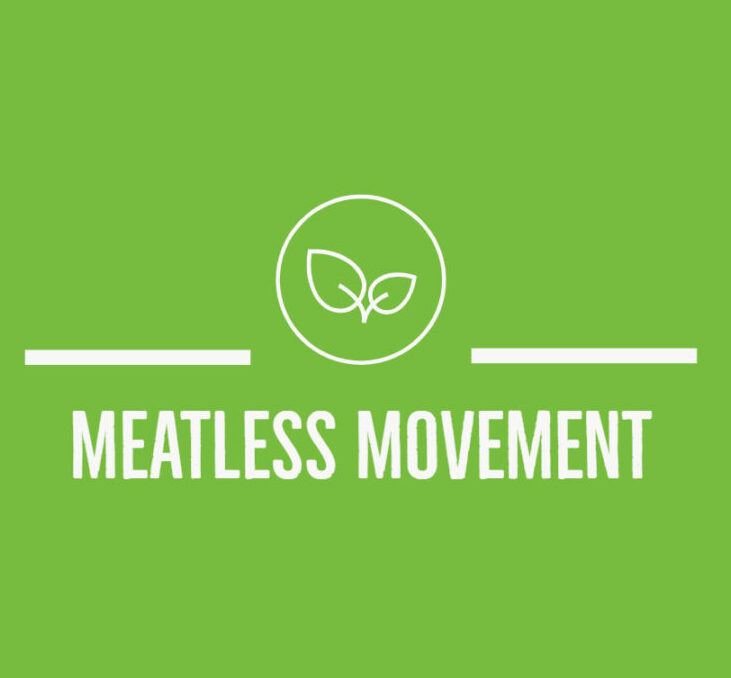Priscilla is a former flight attendant who loves to cook quality vegetarian cuisine, fine vegetarian dining from almost all cultures and traditions, and travel. Recently she created an IG page in hopes of sharing her own vegetarian cooking ideas and favorite foodie feeds with a wider audience. Meatless Movement recently had a chat with her about her personal approach to vegetarianism – “glam style” as she puts it.
Please tell us more about yourself
Hello everyone! I’m Priscilla and I’m from Hong Kong. I did not like meat when I was a child. Looking back, my Mom (who has been a vegetarian for more than forty-five years) has been the most important influence upon my lifestyle. Without any pressure at all, she encouraged me to make my own decision to embrace vegetarianism when I was still in primary school.
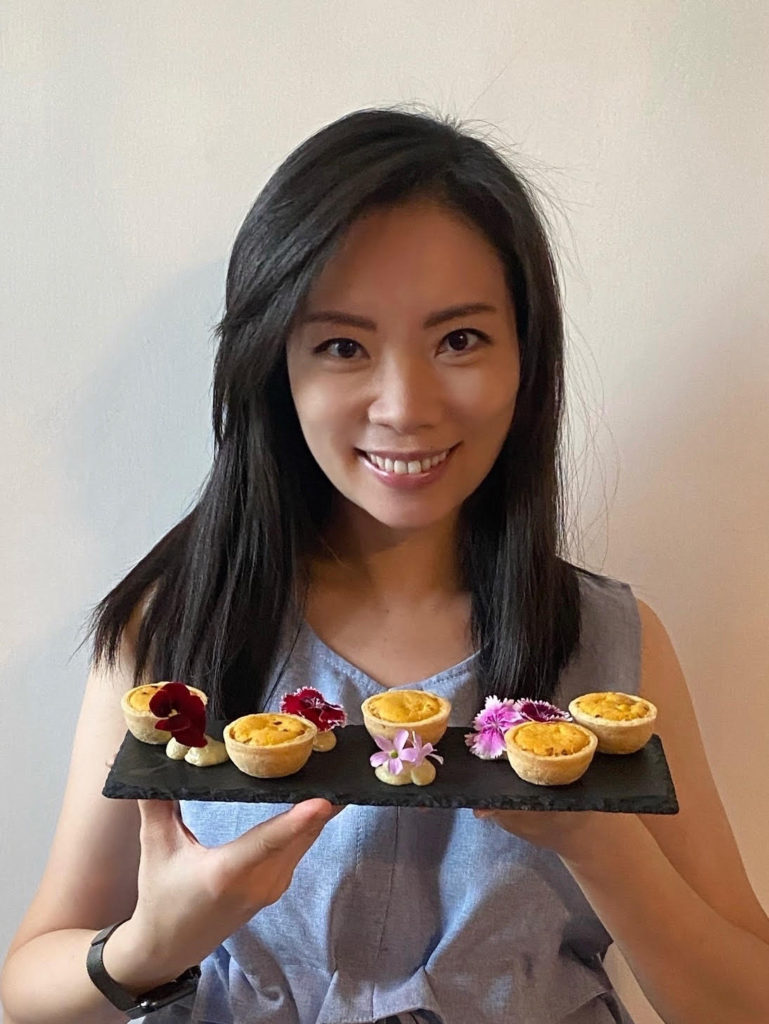
How does being vegetarian affect your life?
Fast forward to today, I have been a vegetarian for over 30 years; and because it has become my lifestyle, it is as natural to me as breathing.
The only bump in the road occurred during my pregnancy. Even though my mother-in-law was worried that my vegetarian diet would impact the growth and development of my baby, I didn’t change course. As it turns out, my baby weighed a chubby and healthy 8.6 pounds at birth, which is heavier than average!
I am a practicing Buddhist, hence my diet is Buddhist vegetarianism. Essentially, this means that I don’t eat the five pungent vegetables. These are onions, garlic, chives, scallions and leeks. Eating out at Western, Indian or Asian style vegetarian restaurants—which rely heavily upon onions—can be challenging sometimes, especially when travelling overseas.
I’ve just started an IG page (and will probably start a YouTube channel soon as well) in order to introduce viewers to different vegetarian restaurants I’ve enjoyed that have a unique Hong Kong ambience. I sometimes post feeds about my own cooking, too.
In the near future, I hope to create short video clips sharing easy Chinese/Asian style vegetarian cooking techniques and recipes with others, so that people from all around the world can try to make and enjoy these dishes themselves.
How to Ease Into Meatless Eating?
Make the transition to a meatless diet by making simple changes over time.
A well-planned vegetarian diet is a healthy way to meet your nutritional needs
- Going meatless can be challenging at first, especially for lifelong meat-eaters. I know how difficult it can be to make the switch initially. Begin by gradually adding more plant-based foods and vegetables to your diet, and less meat. There are reliable and generally accessible meatless substitutes for just about every animal- or seafood-derived food and dish. Start by taking away those meats which you consume least often. Make a slow and steady transition when eliminating animal products from your everyday diet and begin to consider tasty alternatives. No one said this was going to be easy, so take it slowly!
- If you would like to be a vegetarian, and a healthier one, pay attention to maintaining a balanced nutrition intake. It is important to plan your diet so as to make sure that it includes the whole range of essential nutrients, including some which may be harder to find outside of meat and dairy. Be sure to make up those deficiencies in nutrients that meat used to provide by eating selected fruits, vegetables, beans, nuts and seeds. Remember: healthy and nutritious vegetarian eating is just as important as getting rid of the meat itself. So choose a variety of healthy plant-based foods and maintain a well-balanced diet.
- You can put more effort into making each meal delicious. You can also try to cook new and interesting cuisines from different countries. Some people say that they lose their taste for meat after having gone without it and learning to cook vegetarian. Once your taste buds are satisfied by delicious plant and vegetable-based alternatives, you will no longer crave meat.
What are your favourite Hong Kong vegetarian dishes?
A) I definitely would like to recommend a wide range of vegetarian sushi from 知味駅 . This venue serves up affordable and all-meatless Japanese fare such as mango breaded rolls, “eel” cheese rolls, and glamorous sushi and sashimi morsels such as “soft shell” and “salmon” sushi.
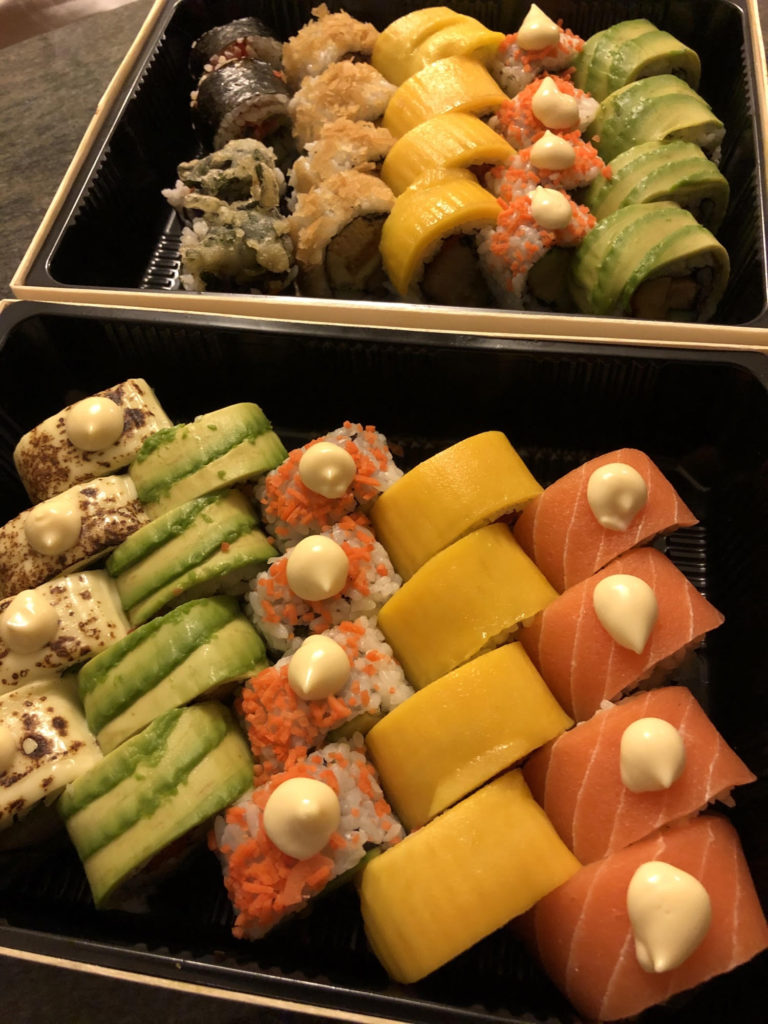
B) Next, Thai-style cashew nuts with sweet and sour lion mane mushrooms from 悠蔬食 – Leisurely Veggie—is a tasty and simple dish. This Thai fusion restaurant never fails to surprise me with its delicious menu options. I especially love their unique blend of Thai cuisine modified to suit the local palette.
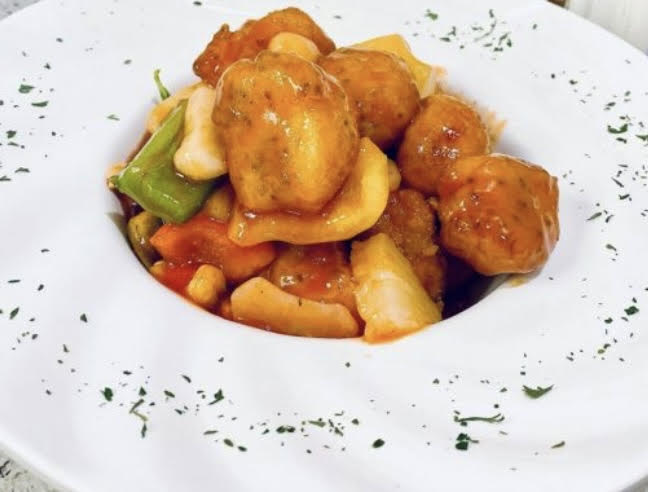
C) Double-boiled bamboo fungus and tremella soup (Miss Lee). This soup tastes so good—and it’s made without any MSG! Be sure to order in advance.
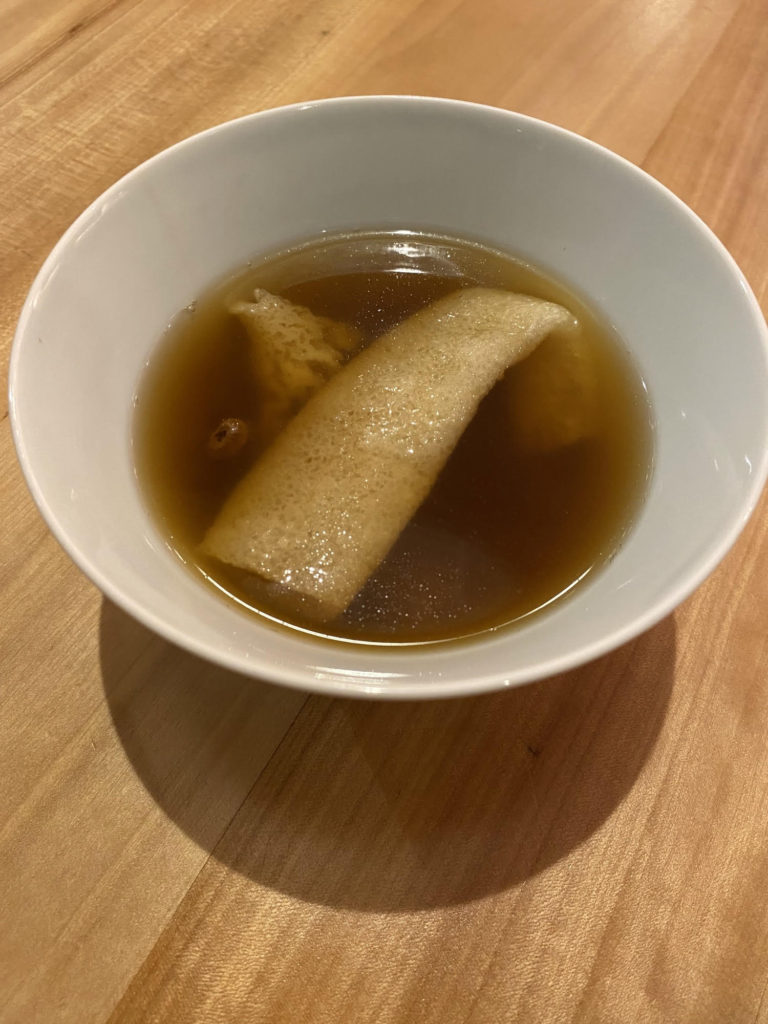
D) Thai-style (vegetarian) fish cakes and stir-fried Thai noodles (Thai Vegetarian Food)
These fish cakes come from one of Hong Kong’s very few authentic Thai restaurants owned and operated by Thai chefs. All of their ingredients are flown to Hong Kong by air daily. This fine dining restaurant experience is all about the display of excellent cooking techniques, top-notch ingredients, and unique seasonings made sublime with herbs and spices from the Thai culinary tradition.
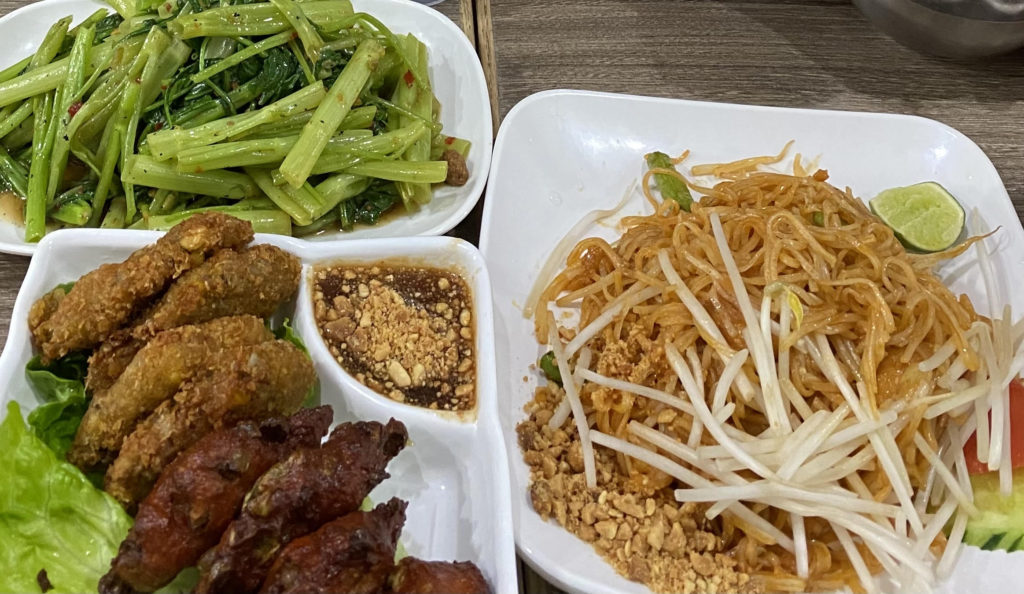
E) Beef Wellington from 游° (Yau Veggie Bistro)
This vegetarian fusion cuisine bistro is operated by a group of passionate young people. Their signature dish, beef Wellington, is the best I have ever enjoyed in Hong Kong. Crispy on the outside, the juicy patty is made with Beyond BeefTM and mushrooms packed with savory herbs & spices.
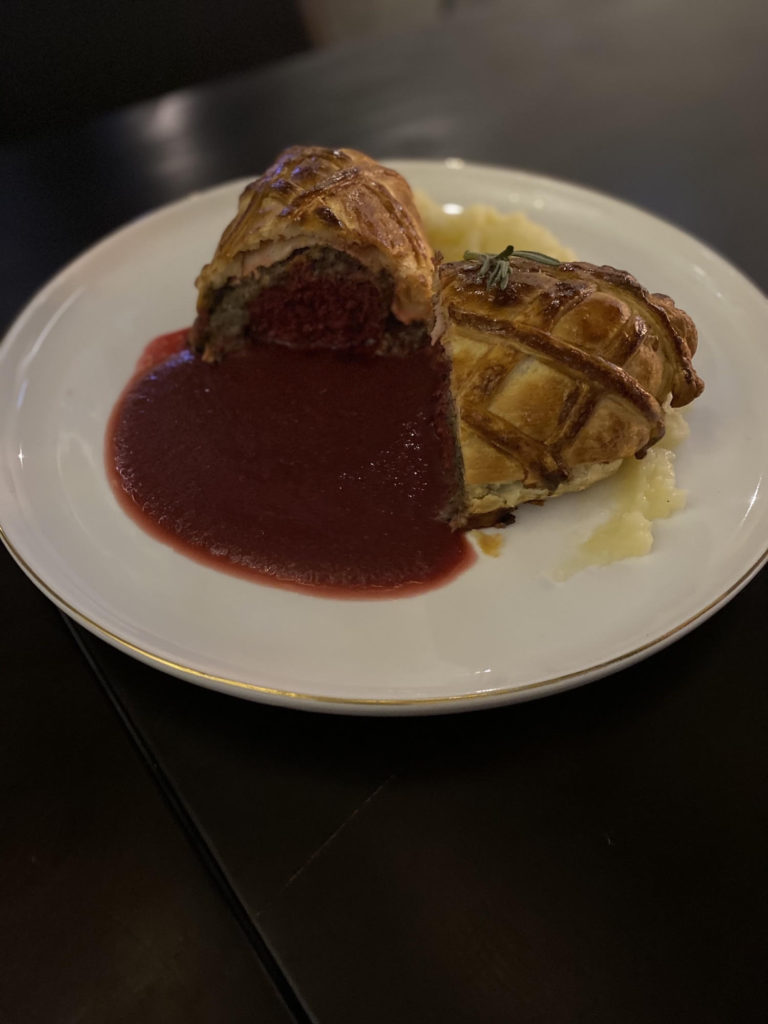
F) Last but hardly least, I adore Avocado fritters with wasabi aioli (POP Vegan). Pop Vegan serves up an appetizing twist with these avocado-stuffed crunchy fritters topped with seaweed and wasabi.
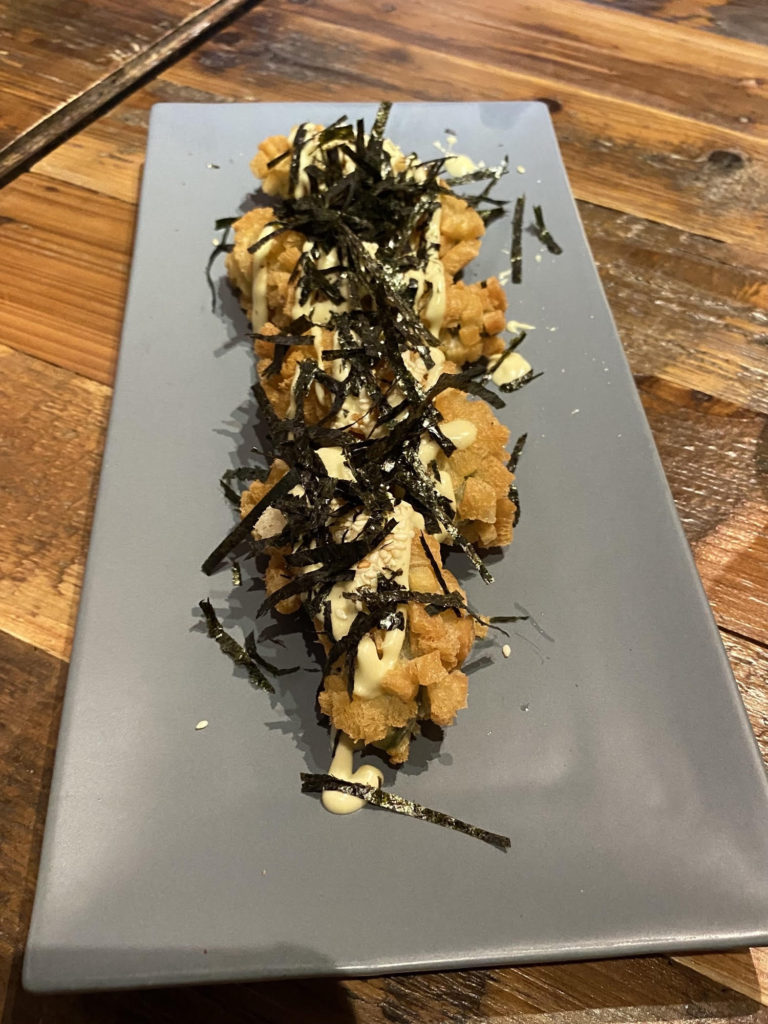
Being a vegetarian and promoting it
“Plants also have feelings; aren’t you still taking a life when you eat vegetables?”
What are some good responses to these or other questions vegetarians regularly get?
I think the most effective way to promote vegetarianism is not to be too pushy about it. Spare meat-eaters harsh criticism or the angry vibe; instead, simply and calmly seek to educate and state the health and other many tasty benefits of vegetarianismclearly.
I find using ethical arguments to be more effective than getting angry. Offering facts about the positive impacts of vegetarianism upon the environment is more compelling—for example, when reducing the carbon footprint of grain, water and land used to produce and harvest livestock, the avoidance of unnecessary animal suffering and so on. All of these (and many other) reasonable arguments for vegetarianism are very likely to promote further thinking on the part of meat-eaters.
One common myth about vegetarianism is that meatless diets inevitably result in unhealthy weight loss; or that vegetarians become weak or tired due to malnutrition. This couldn’t be farther from the truth! In reality, plants provide essential nutrients and can be easily absorbed creating body fat and muscle regularly.
We can stay perfectly healthy as vegetarians as long as we’re eating a balanced diet consisting of at least “five colors” (as we say in the Chinese culinary tradition) and at least three food groups with each meal. By taking in such a variety of foods everyday, including fruits and vegetables, beans, and nuts you’ll be able to maintain balance in your body and keep healthy with a minimum of hassle.
Glam Vghk
I’m a 𝕍𝕖𝕘𝕖𝕥𝕒𝕣𝕚𝕒𝕟 ✈︎ and former flight attendant. I love to cook quality vegetarian cuisine, fine vegetarian dining from almost all cultures and traditions, and travel. Please follow my page ♥︎ to learn more about Chinese and fusion vegetarian cooking ideas as well as my favorite foodie feeds.
all images courtesy of Priscilla
